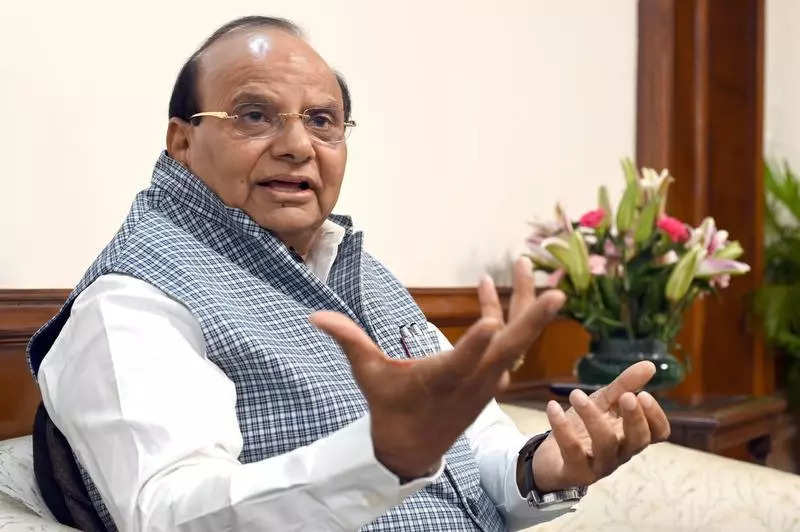
NEW DELHI: Lieutenant governor VK Saxena has given his approval to the reconstitution of Delhi Building and Other Construction Workers Welfare Board, paving the way for govt to prepare a scheme to provide compensation to the construction workers who lost work due to the implementation of GRAP IV provisions. The board was not in place for the last couple of years.
While giving his nod to its reconstitution, LG directed that immediate steps should be taken to implement Supreme Court directions to provide subsistence allowance to workers affected due to restrictions on construction activities because of high pollution levels in NCR states.
“Considering the continuation of GRAP IV norms, NCR states have been directed to use the funds which were collected as labour cess for the welfare of construction workers to provide them weekly subsistence for the period during which construction activities are prohibited due to the implementation of GRAP and pay wages notified under the Minimum Wages Act for the respective categories of workers,” LG noted on his file.
The board has a huge corpus of Rs 4,500 crore collected over the years as labour cess from govt and private construction projects costing over Rs 10 lakh.
As per records, there are over 88,400 “live” workers registered with the board. Saxena also noted on the file that the board should immediately review its schemes, their progress, and issues in implementation to maximise the coverage of benefits for construction workers and their families who live life in the “lower-most strata” of society.
“The scheme for housing also needs to be revisited so that workers constructing buildings and shelters for others do also have their own houses in Delhi with adequate financial support from the board,” LG said.
The board will be chaired by the additional chief secretary (finance) and will have the welfare commissioner in the Union labour ministry as the Centre’s representative. The five members representing Delhi govt include the secretary and commissioner from the labour department, additional labour commissioner, special secretary (finance) or his nominee, and principal secretary (law) or his nominee.
As representatives of major construction agencies, govt has included engineer-in-chiefs of PWD, DDA, and MCD, apart from the additional general manager (HR) of DMRC, and the chief engineer of DTTDC. The board will also have five members representing the building and other construction workers’ unions.
Tarun Cherukuri, co-founder and CEO at Indus Action, a think-tank working for underserved communities, said the workers should be paid a daily wage compensation during the ban on construction activities, and it should increase if the restrictions continue beyond a week or 10 days.
He added that the actual number of workers affected by the ban was close to one million.
“During the peak of Covid, registrations reached 1.1 million. There’s definitely a need to bridge this gap. In Rajasthan, workers who complete 90-100 days of MGNREGA work are automatically eligible for labour cards. A similar validation protocol could be implemented in Delhi. The govt can also engage big construction companies and unions for workers’ validation. Some online platforms also maintain verified databases of blue-collar workers, and that data can also be used to ensure timely disbursements,” Cherukuri said.









